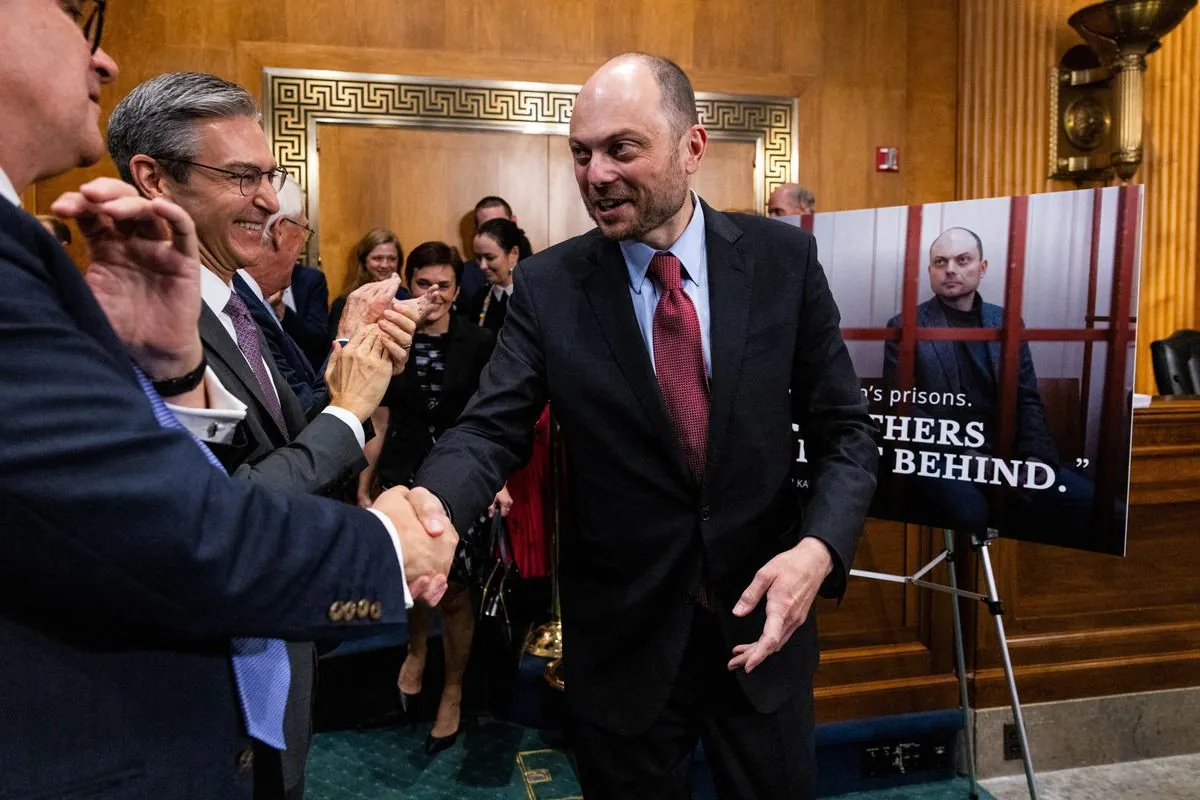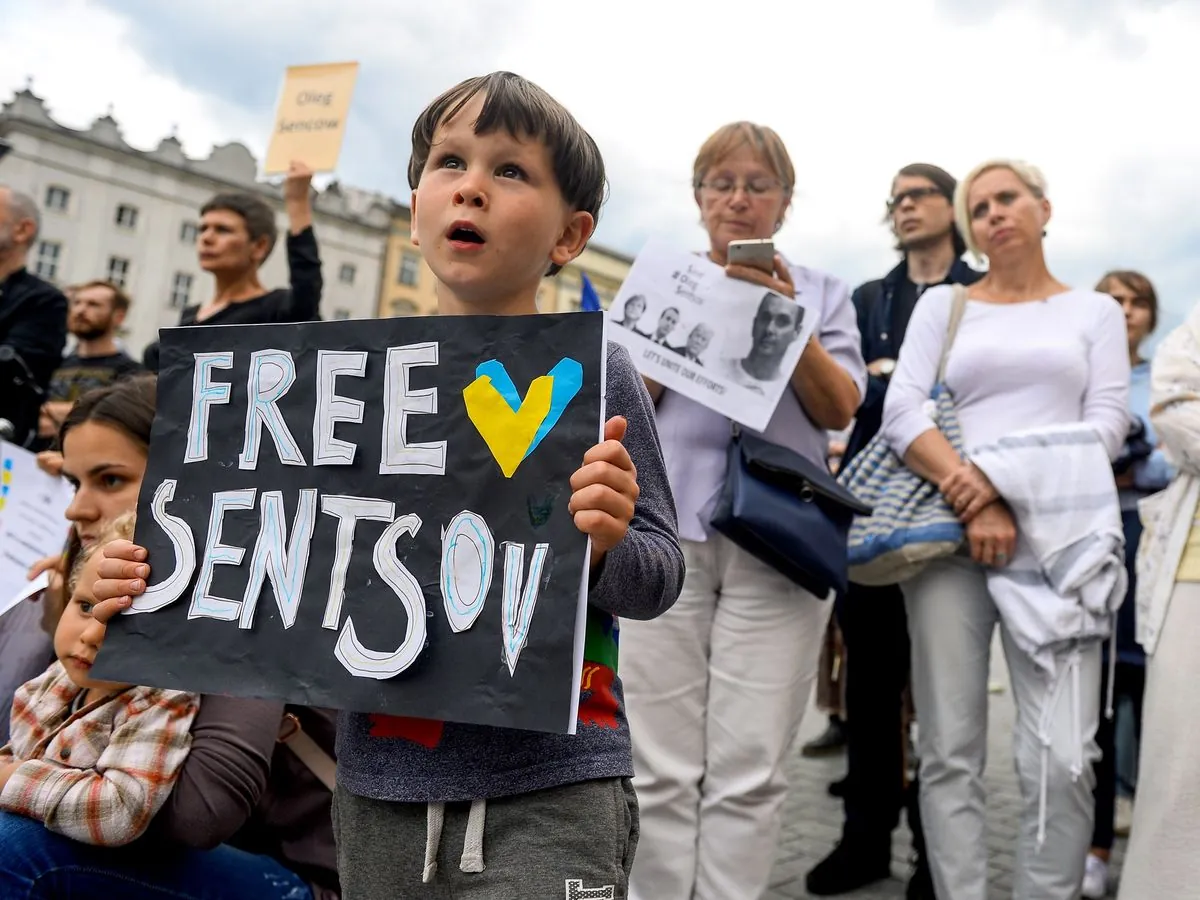Russian Dissident Addresses U.S. Senate, New Act to Support Democracy
Recently freed Russian activist Vladimir Kara-Murza speaks at U.S. Senate event. Senator Ben Cardin to introduce Bridge Act, aiming to protect democracy advocates in Russia and Belarus.

In a remarkable turn of events, Vladimir Kara-Murza, a prominent Russian dissident, addressed U.S. lawmakers and diplomats in a Senate hearing room on September 16, 2024. This appearance came just weeks after his release from a Siberian prison as part of a significant prisoner exchange.
Kara-Murza, who has survived two suspected poisoning attempts in 2015 and 2017, expressed his astonishment at the situation. The event aimed to highlight the circumstances of hundreds of individuals reportedly detained in Russia for their political views.
Coinciding with Kara-Murza's visit, Democratic Senator Ben Cardin, chair of the Senate Foreign Relations Committee, announced plans to introduce the Bridge Act. This legislation, named after the "bridge" metaphor used in Cold War diplomacy, is designed to safeguard Russians and Belarusians working towards democratic ideals in their respective nations.
The proposed Act would authorize funding to bolster independent media and civil society in Russia, Eastern Europe, and Central Asia. It would also support various initiatives to assist dissidents residing outside their home countries.
Kara-Murza, a historian and journalist, was freed on August 1, 2024, from a 25-year sentence for treason. His release followed an extensive campaign involving congressional letter-writing and the passage of a resolution calling for his liberation.
"Whatever the cynics and the skeptics will tell you, advocacy works and public attention protects and public attention saves."
The dissident's case highlights the ongoing challenges faced by political activists in Russia. Since the full-scale invasion of Ukraine in February 2022, which was partly launched from Belarusian territory, independent media in Russia has faced severe restrictions.

In Belarus, Alexander Lukashenko, Europe's longest-serving head of state, has positioned himself as a key supporter of Russian President Vladimir Putin. Lukashenko, who has ruled Belarus since 1994, denies the existence of political prisoners in his country. However, his regime used extensive force to suppress protests in August 2020, following allegations of election fraud.
Recently, on September 18, 2024, Lukashenko signed a decree pardoning 37 individuals convicted of "extremism"-related crimes. This move comes in the context of the 2020 Belarusian protests, which were the largest in the country's history.
The introduction of the Bridge Act and Kara-Murza's testimony underscore the ongoing efforts to support democracy and human rights in the region. As these events unfold, they continue to shape the complex landscape of international relations and the struggle for political freedom in Eastern Europe.


































